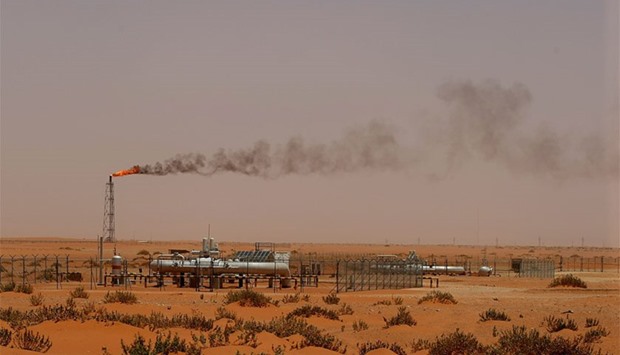Saudi Arabia is considering issuing shares in state-owned oil giant Saudi Aramco, the kingdom's powerful deputy crown prince told The Economist in a rare interview published Thursday.
"That is something that is being reviewed, and we believe a decision will be made over the next few months," Mohammed bin Salman told the London-based publication after the country posted a record budget deficit due to falling oil prices.
"Personally I'm enthusiastic about this step. I believe it is in the interest of the Saudi market, and it is in the interest of Aramco, and it is for the interest of more transparency, and to counter corruption, if any, that may be circling around Aramco," said the prince.
The thirty-something son of King Salman chairs the Supreme Council, which has overseen the company since it was separated from the oil ministry last year.
He is also defence minister and heads the kingdom's main economic coordinating council.
Saudi Aramco is the world's largest oil company in terms of crude production and exports.
Saudi Arabia, the largest crude exporter, last week reported a deficit of $98 billion (90 billion euros) for 2015.
It projected a shortfall of $87 billion in this year's budget, with crude prices currently around $32 a barrel, down from more than $100 early in 2014.
In an unprecedented departure from its decades-old generous welfare system, Riyadh's budget last week announced rises in fuel, electricity, water and other prices.
The dive in oil prices is largely due to Saudi Arabia's own policies and those of other members of the Organization of the Petroleum Exporting Countries (OPEC).
They are refusing to cut oil production as they seek to drive less-competitive players, including US shale producers, out of the market.
Analysts expected the kingdom would make only a small stake available to the public.
"It would generate some cash for the kingdom while at the same time put a price tag on a company that undoubtedly would be one of the biggest in the world," said Ole Hansen, of Saxo Bank.
Abhishek Deshpande, an analyst at Natixis, said talk of an IPO shows the kingdom's determination to address the economic consequences of low oil prices.
The kingdom has adopted a policy of selling shares in all major state-owned firms.
Saudi Arabia's stock exchange allowed foreign investors to trade shares for the first time last year.
Foreign banks, brokerage houses, fund managers and insurance companies based outside the Gulf can now invest directly on the Tadawul All-Shares Index (TASI), provided they meet the requirements.
In late 2014, the kingdom's largest initial public offering raised $6 billion for Saudi Arabia's National Commercial Bank.

